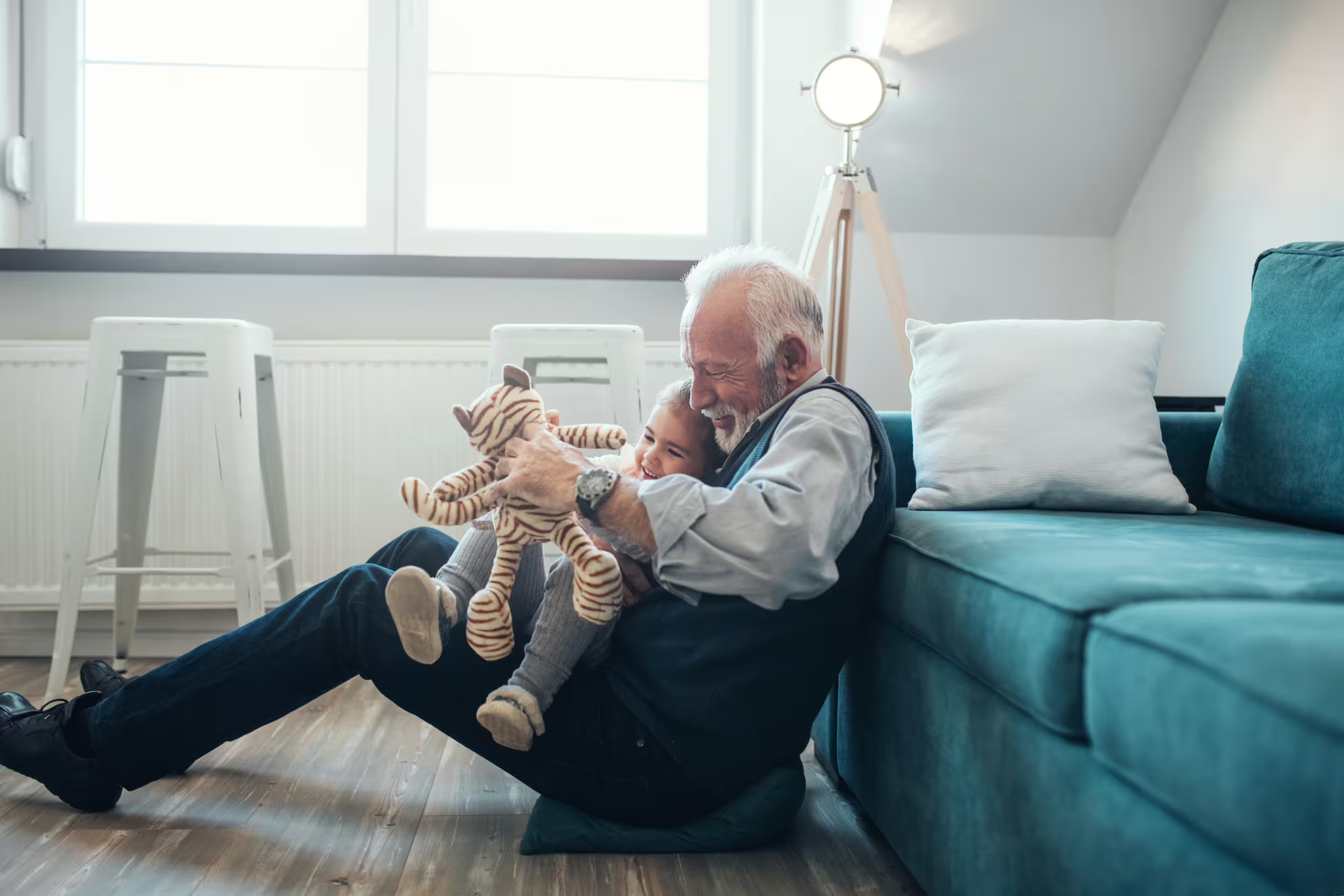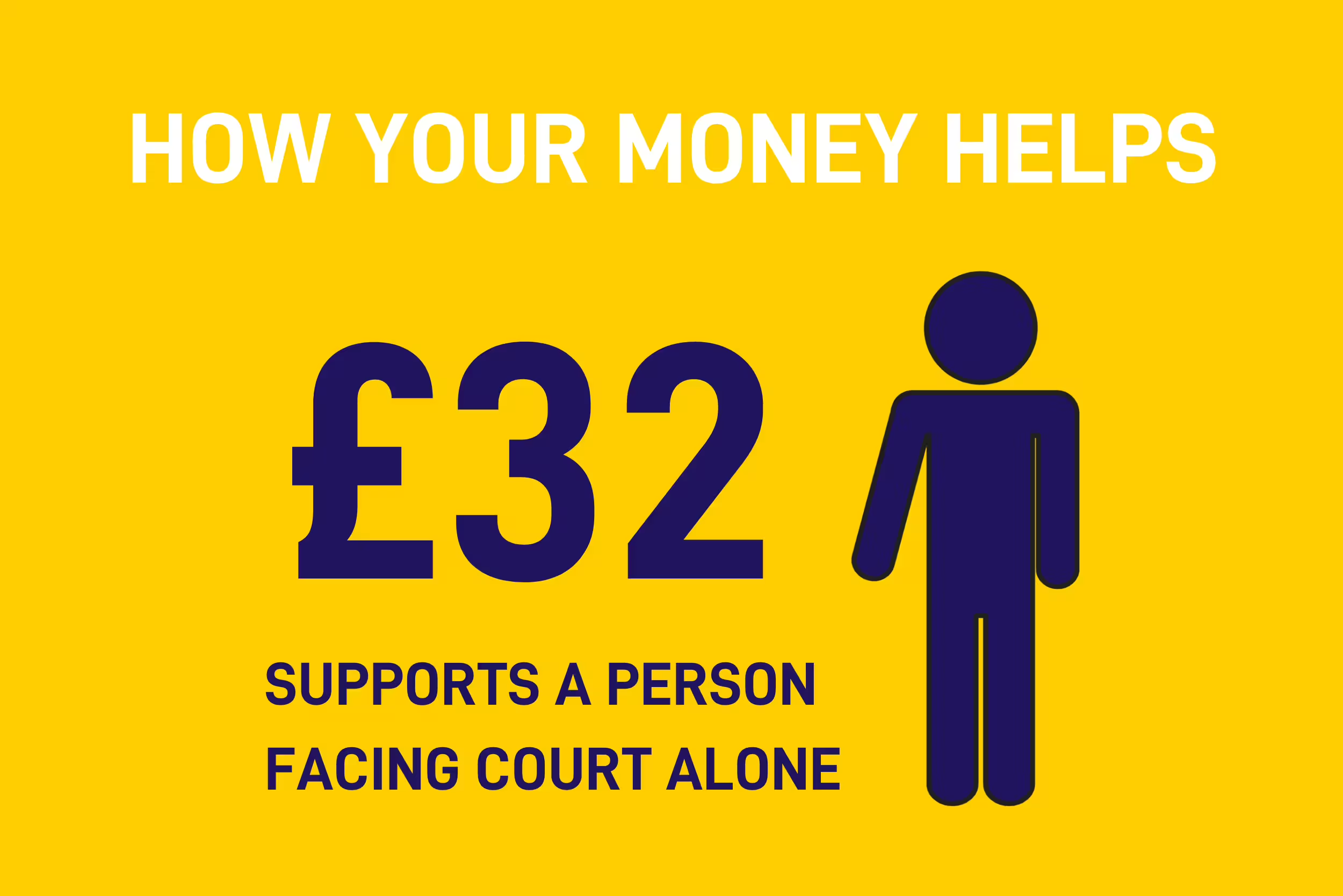
Simon’s story
Our clients often face multiple disadvantages such as unemployment and disability. It’s sometimes hard to believe that vulnerable people are left alone to fight for their homes and their families. Quite often they face losing everything they love simply because they don’t know how to present themself before a judge. Simon’s story is a prime example of this.
It was a typical morning in the Support Through Court office, the volunteers had arrived and were getting ready for a busy day. At 9:30, a man burst through the doors looking lost and bewildered. The gentleman, named Simon*, was extremely scared and confused, he had an eviction hearing that morning and was very upset and unprepared.
Laura*, one of our volunteers, quickly spotted his distress and quietly took him to one side, inviting him into a separate room so he had the space to calm down and they could talk through his situation.
At first Simon stood huddled in a tight ball against the wall unable to utter more than a few words. It took a long time for Laura to help him relax, but eventually he began to calm down and his story emerged. It turned out Simon suffers from severe agoraphobia and had been barely able to leave his house for the last six years. His condition left him unable to work and he survived on benefits.
Agoraphobia is a fear of being in situations where escape might be difficult, or help isn’t available if things go wrong. When someone suffering from agoraphobia is under stress, they experience symptoms similar to a panic attack – these can include hyperventilation, rapid heartbeat, hot flushes, nausea and severe trembling. Someone suffering from an attack, like Simon did that morning, often feels detached from the world around them and becomes extremely scared and disorientated. This makes it incredibly hard for them to engage with people and to cope effectively with the situation they are in. This is made a lot worse when the sufferer is alone, in an unfamiliar and stressful situation where a lot is at stake.
Being in court alone resulted in Simon’s extremely distressed condition that day. He was very unprepared for his hearing and he was extremely worried he would be unable to stay in the court building long enough to attend the hearing, let alone represent himself clearly and effectively to the judge. The importance of what was at stake – a negative decision would leave him homeless – increased his distress.
As they talked, Laura noticed that Simon’s court papers were very muddled and so she offered to help him sort through them. Following this she helped him fill in a ‘Suspension of Eviction’ form, which would put back the eviction date so he could have more time to move.
When he felt ready, Laura accompanied Simon to the court waiting room and they went together to the Bailiff’s counter where a member of court staff informed them Simon would be in front of a judge within the next couple of hours. Seeing Simon was still extremely distressed – entering the court waiting room had been completely overwhelming for him – Laura recommended that they wait outside in the corridor instead. They waited there for about an hour. Simon tucked himself into the corner whilst Laura sat on the floor opposite him. He was extremely anxious and obviously uncomfortable the entire time but Laura managed to get him talking about his beloved dog, which seemed to take his mind away from the ordeal of being in a busy, unknown place.
When it was time to go to the hearing he closed his eyes and held onto Laura’s shoulder and, at Laura’s request, they were led through the side corridor of the court waiting room by the usher, so as to avoid the busy crowds. Laura’s presence in court kept Simon calm and, during the judge’s pauses, she was able to talk him through what was happening. This enabled him to follow proceedings, work out what to say next and deal with the process of being in a daunting court situation far outside his comfort zone.
The judge took account of Simon’s situation. The case was resolved in a matter of minutes and the eviction was suspended. The judge ordered that all future issues were to be sorted through home visits, to ensure Simon never had to go through this traumatic experience again.
Without Laura’s help, Simon would never have stayed in the building long enough to get his eviction resolved. He was completely alone, terrified and lost, and would have had his home – the one thing that gave him safety and security – taken away from him because there was no-one there to help.
Having a Support Through Court volunteer there every step of the way to reassure him and talk to him meant that Simon was able to attend the hearing and engage fully with the court staff and the judge. As a result, he was able to go home to his dog, where he felt safe and happy, knowing that he would never have to return and go through this traumatic experience again.
*Names have been changed to protect client and volunteer confidentiality
You can make a difference
Inspired by Simon’s story and want to help people like him? Find out how you can support us.
Make a donation

Opening hours, address and contact information for all of our locations.
Donate now

